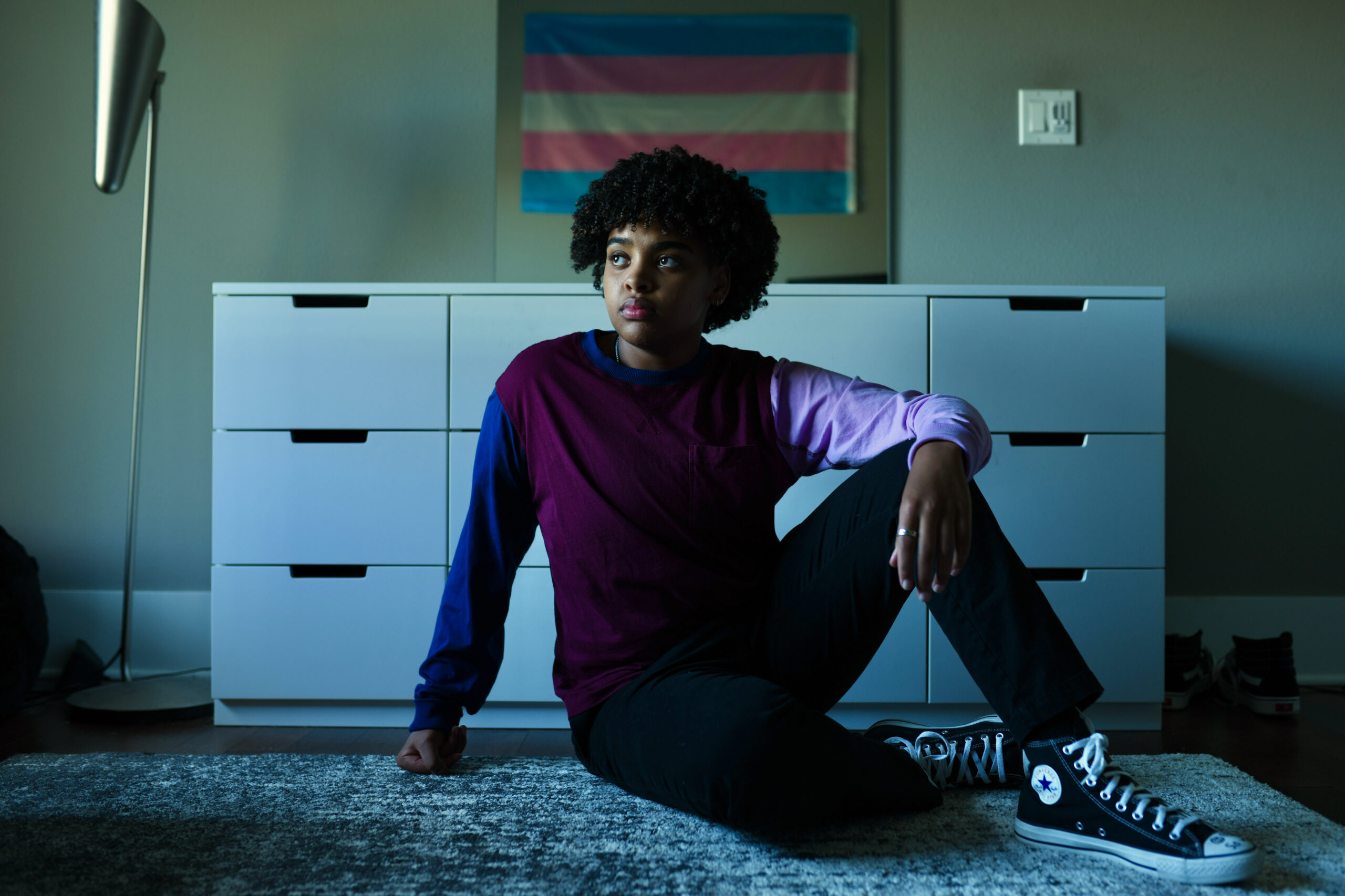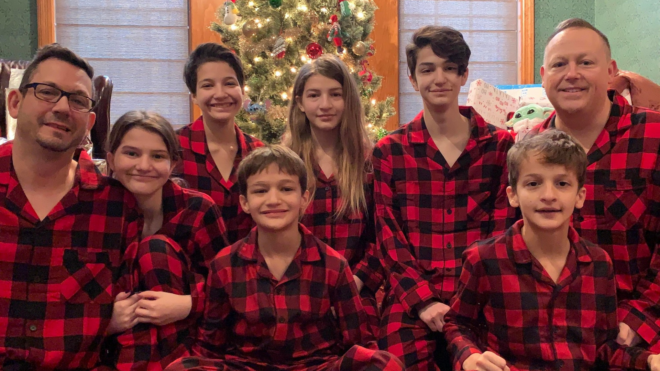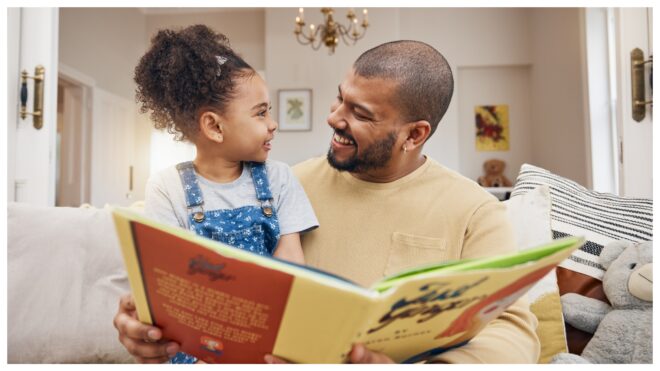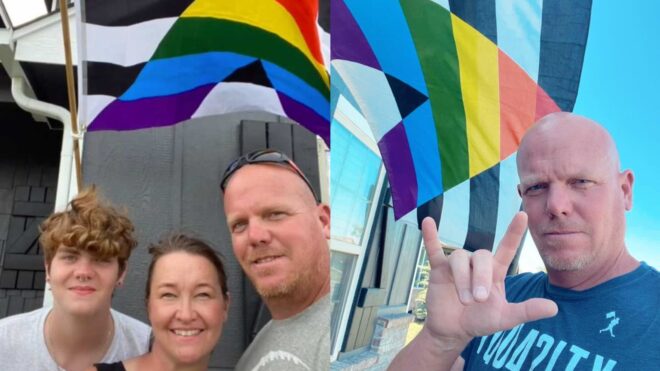
Being a good ally to the LGBTQ+ community is undeniably important, especially as a parent. We all want to make sure our kids are kind, compassionate, and understanding, and the best way to encourage them to be accepting is by modeling it ourselves. Whether you're the parent of an LGBTQ+ child or not, it's essential to be supportive!
In the interview above, the hosts of the Momtourage podcast speak with Amy Landwehr, the mother of a trans teenager, about how to support a child who comes out as transgender.

Here are some of Amy's tips for being a better ally to the trans community:
Respect Their Pronouns
One of the easiest things you can do is start asking people, "What are your pronouns?" Once you know, make sure you use that person's preferred pronouns!
Own Up To Mistakes
Everyone makes mistakes from time to time, so don't panic if you mess up. Just apologize (without being defensive), be open to criticism, and keep moving forward.
More from CafeMom: Mom Outs 'Karen & Ken' for Sending Nasty Text About Her Shirt During Son’s Soccer Game
Use Inclusive Language
When you're speaking about gender and sexuality (as well as other factors of identity), try to be as inclusive as possible. For example, instead of saying, "hey boys and girls," when addressing a group, try saying, "hey friends" or "hey everyone."
Educate Yourself & Your Children
We are all constantly learning, so it's OK if you're not familiar with certain terminology or concepts — but it's your responsibility to educate yourself (and your kids). There's tons of great information online about the LGBTQ+ community, so make sure to stay informed.
Support Their Journey
Understand that coming out is a journey for most people, so make sure they know they can trust you and rely on you. If you don't feel equipped to help in the ways they need, encourage them to speak with professionals (like therapists with LGBTQ+ expertise).
Uplift LGBTQ+ Voices
Instead of centering yourself in the narrative, continue to uplift the voices of LGBTQ+ individuals.
Listen to People in the Community
Listen to LGBTQ+ individuals and seek out their stories when you're trying to learn more.






